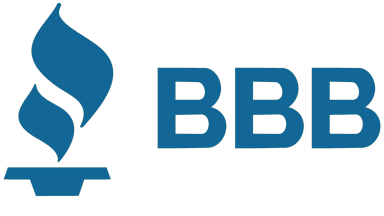Real Estate Delays Caused By Wildlife Problems
How Animal Infestations Can Disrupt A Property Sale
You’ve spent more months than you’d have liked getting your property ready to sell—fresh paint, new carpet, everything staged and squared away just right. Maybe you’re even under contract, feeling that cautious optimism sellers know too well. Then, somewhere between the inspection and the closing table, a red flag goes up: the telltale signs of a wildlife problem. Squirrels in the attic. Raccoon droppings in the crawlspace. Bat guano in the eaves. Just like that, the deal slows to a crawl—or worse, gets scrapped entirely.
It’s not just about the mess. Real estate transactions are built on trust and timing. Buyers want to feel good about their purchase, and lenders want assurance the property’s worth what they're lending for. When wildlife gets involved, it throws a big question mark into the mix, and everyone—agents, appraisers, underwriters, and especially buyers—starts asking, “What else don’t we know?”
Let’s look at how something as seemingly small as a family of squirrels or a hidden raccoon den can create real roadblocks when a property changes hands.
Discovery At The Worst Possible Moment
Home inspections are designed to catch the things most of us never think to look for. Buyers count on these reports to reveal structural issues, faulty wiring, leaks, and yes—evidence of animals. When wildlife signs pop up during an inspection, the first reaction is often surprise, followed by concern, and then negotiations. That’s where the delays begin.
Even if the critters are gone, signs they were there can raise flags. Gnawed wood, contaminated insulation, damaged ductwork, and the unmistakable odor of an uninvited guest all add up to uncertainty. Buyers might ask for a price reduction or demand that the issue be fully addressed before moving forward. Some will walk away entirely if they sense the problem could become their responsibility.
From there, it turns into a scramble. Sellers might need to get wildlife control experts in quickly, schedule follow-up inspections, and potentially perform repairs—all within a tight escrow timeline. And with many professionals booked out days or weeks in advance, that can mean extensions or missed deadlines. In a competitive housing market, that kind of hiccup can easily cost a seller a deal.
The Value Question
When a property has a known wildlife issue—current or previous—it often makes buyers hesitate. And when buyers hesitate, they negotiate.
Rodents chewing through wires or raccoons nesting in chimneys don’t just create immediate damage—they create uncertainty about what might be lurking behind the drywall or under the floorboards. And uncertainty makes people nervous, which usually translates into lower offers.
A house that was expected to draw top dollar can suddenly become a “fixer-upper” in a buyer’s mind. They start to wonder: Is there mold? Will the smell go away? Could there be lingering health concerns? Is the problem really solved? It becomes less about what’s visible and more about what could have been missed.
Even cosmetic fixes aren’t enough if the root issue wasn’t resolved properly. Buyers do their homework, and if they catch wind that an infestation was simply patched over without a thorough resolution, it undermines their confidence—and sometimes the entire transaction.
Lending And Insurance Complications
It’s not just buyers who react to wildlife issues. Banks and insurers get nervous, too. Lenders have guidelines about property condition, and if a home shows signs of damage from animals—whether structural, electrical, or sanitary—they may withhold final approval until it's corrected. That can mean added inspections, required repair documentation, or delays in appraisal approval.
For insurance companies, the risk calculation changes. Some won’t issue new policies on properties with unresolved wildlife damage or known infestations, particularly if there’s evidence of contamination. This becomes a sticking point if the buyer can’t bind coverage in time to close, forcing a delay or even requiring the seller to foot the bill for repairs upfront.
All of this comes down to one issue: credibility. When there’s even a hint of a wildlife problem, it puts pressure on everyone involved to verify, document, and fix. That takes time, often money, and occasionally a fair amount of stress.
Prevention Beats Damage Control
The frustrating part is that most wildlife issues in real estate transactions could’ve been avoided with some early diligence. Homeowners don’t always know what’s going on in their attic or basement, especially if they haven’t lived in the property full-time or haven’t had a reason to poke around. Animals are good at hiding, and a lot can happen in quiet corners of a home over a few months.
The best way to avoid surprises is to get ahead of them. Having a professional wildlife inspection before listing gives sellers time to address problems without pressure. It also lets them market the property more confidently, knowing they won’t be blindsided halfway through the process.
Buyers, too, are starting to ask for these inspections on top of standard home evaluations—especially in rural or wooded areas where wildlife pressure is high. It’s become a factor in due diligence, and rightly so.
A wildlife-free home is more than just clean—it’s structurally sound, odor-free, and free of risk. And in the eyes of a buyer or lender, that makes a big difference.
At Varment Wildlife Control, we understand the stakes. Whether you’re getting ready to list your home or you’re halfway through a deal that just hit a wildlife-related snag, we can help. Our team doesn’t just remove animals—we assess, repair, and seal up your property to reduce the chances of future issues that could throw off your timeline or lower your final sale price.
We’ve worked with real estate agents, homeowners, and property managers across the region to address wildlife concerns quickly and thoroughly, so everyone can move forward with confidence. If you’re seeing signs of animal activity—or just want the peace of mind that comes with a clean bill of health—contact us today. Let’s make sure your sale goes through smoothly, without any unexpected wildlife detours.

